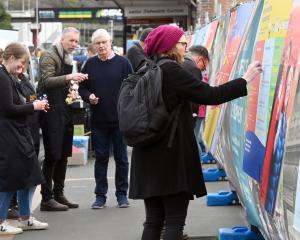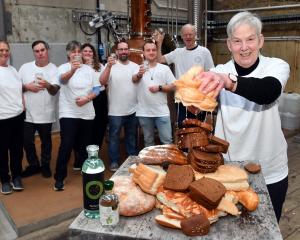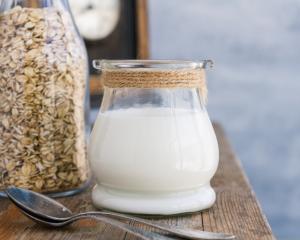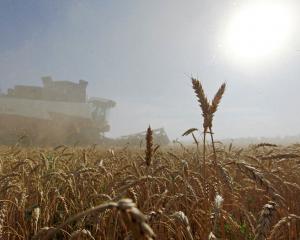
When Cyclone Hale hit Tāmaki Makaurau / Auckland in January it resulted in extensive flooding, slips and tragedy. It also catalysed more urgent discussions on adaptation to climate impacts. That weather bomb has been swiftly followed this month by the catastrophic Cyclone Gabrielle, with heart-breaking loss and destruction.

Climate breakdown and social disruption are happening faster than the legislative framework can keep up. We live in a more dynamic world now, with heightened risk and there are no easy solutions. And yet we’ve known for a long time that our continuation of extractive practices, high consumption and burning of fossil fuels is beginning to boil the planet. So we’ve all had plenty of forewarning.
In my work around Otago and Te Waipounamu / the South Island I occasionally see a banner tied to a fence reading “Don’t bite the hand that feeds you WE SAY NO". These are not amateur, painted signs, but professionally printed banners, indicating some wealthy investment attempting to hold back the tides of change. The Government doesn't control the weather of course. The increasing frequency of adverse weather events is a result of our changing climate, which directly affects primary production as well as urban populations. Defensive attitudes are understandable, but won't solve the climate crisis. We need to face the risks honestly, reduce methane, nitrous oxide and carbon emissions and work on solutions together.
Our farmers mostly produce food for export to international markets whose participants have little interest in domestic supply. As Professor Hugh Campbell says we’re "the most extreme export-oriented nation in the world". The corporate industrial food system traps farmers on a treadmill powering banks, fertiliser and seed companies and creates farmer dependency on the system to avoid further debt. Crippling debt, loss of morale, and fears for the future are common, not only in rural communities but increasingly so in our urban centres subject to flooding and extreme weather.
Rural and urban whānau together face climate impacts and we need a cohesive approach to safeguard livelihoods and adapt. For urban Aotearoa we need improved blue-green infrastructure like restored streams, ponds, wetlands, floodplains, water treatment facilities. We need green elements, such as trees, bush, fields and parks alongside social infrastructure like universal basic services including health and climate-safe housing. For rural Aotearoa we need a new economic vision for our rural communities, one that manages the key risks to the resilience and viability of rural communities and farms. The risks are not only climate impacts but also biodiversity risks, farm debt, the rising age of farmers and succession gaps, robotics, artificial proteins and fragile international markets.
These risks and challenges can be addressed through a focus on the local. More than ever we need to focus on the things that matter: clean water and healthy waterways, nutritious seasonal food, warm climate safe homes, strong relationships of interdependence and mutual aid. There are many reasons to be concerned about the future as climate impacts multiply crises. It’s possible that we’ve already triggered some dangerous tipping points that will increase global heating, or we might yet be able to step back from the abyss and simplify our lives, reducing emissions even while adapting to a hotter climate and wilder weather.
Thinking local means shifting away from dependence on big corporations, and rebuilding local systems, climate sensitive infrastructure and services. It means making more of what we have already – such as improving our homes to save carbon and costs, connecting our homes and vehicles to virtual power plants through a more flexible, greener, smarter grid, supporting local seasonal producers and reskilling our communities to grow crops so that we can break the dependence on the supermarket duopoly and tax their excess profits, and more. For rural communities it means diversifying into energy farming and ecosystem restoration alongside adding value to food and fibre instead of concentrating on producing raw materials for the global industrial food system.
The simplification of our lives and valuing the local is rewarding. Each morning I check how the day is tracking as I feed our hens. They eye me up, and always request a treat. They turn straw into fertile mulch that I then spread on the garden, nourishing our crops in turn. Our small garden feeds us and our hens, keeping nutrients in circulation. We can do the same as a nation, scaling back to live within earth’s limits, replacing fossil fuels with local renewables, building food sovereignty and local manufacturing to provide jobs and meaning. We can put a limit on the severity of climate impacts while building a more resilient, caring society, to ensure social and ecological well-being.












